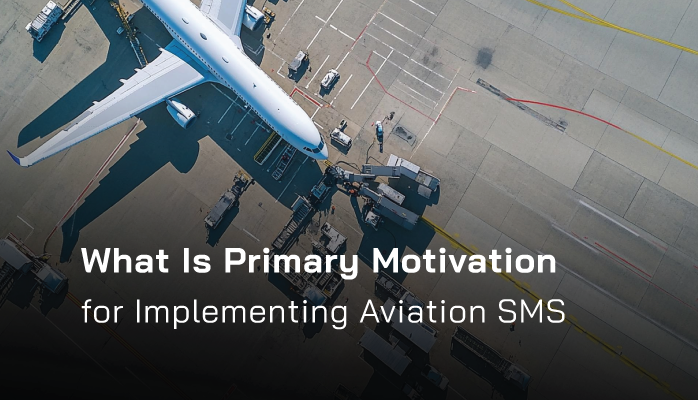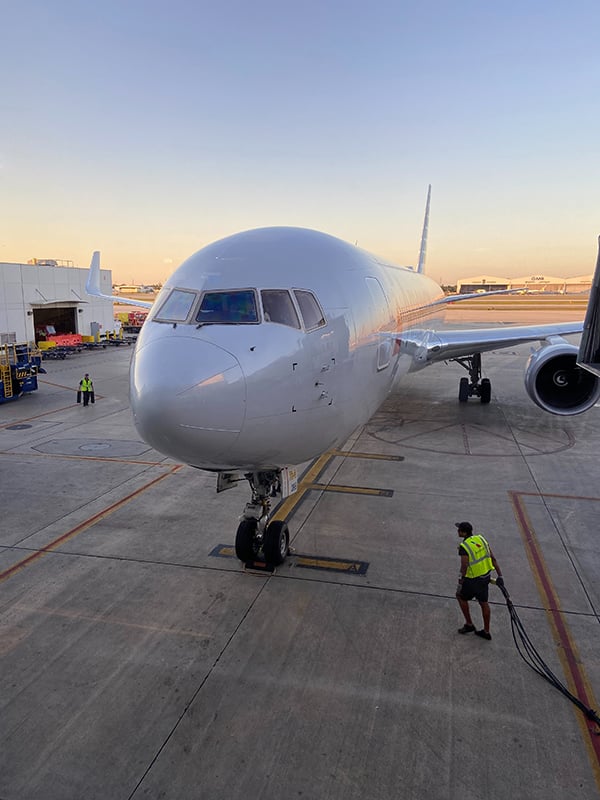Safety Management Systems Drive Efficiency

I believe the primary motivation of safety management systems (SMS) in aviation is efficiency. Of course, safety and looking out for the health and well-being of others is incredibly important, that goes without saying, but there are more consequences of safety risks than simply injuries to consider.
Some accidents and mistakes cost time and money rather than lives. Preventing those types of incidents is incredibly important to aviation as well.
Yet there is more to the rationale of imposing a new set of rules and regulations. From what I've heard, very few pilots or managers like the idea of being forced to comply with safety management system regulatory requirements.
Related Aviation SMS Implementation Articles
- Why Should We Implement Aviation SMS?
- How to Create Aviation SMS Implementation Plan - With Templates
- Aviation SMS Implementation Struggles and Solutions
Let's Embrace Safety Management Systems
Being efficient is crucial to the success of an airline.
People put their trust in airlines and there are many reasons that flights need to run smoothly.
If you’ve ever had a ticket for a commercial flight that’s been canceled, you know how inconvenient that can be. Sometimes it can be downright devastating if you miss a special event or a trip you’ve planned for ages.
Flights carrying products or packages that need to be somewhere on a deadline are equally important to businesses and individuals alike for a variety of reasons. A company might have to delay the production of their product if they can’t get integral pieces delivered on time.
Emergency medical flights or disaster relief can literally be a matter of life or death. Some flight delays or cancellations simply cannot be avoided, such as flights canceled due to weather, but when it’s an error or accident that causes a delay, it can be detrimental to the airline’s success.
Safety management systems in aviation can improve the quality of operations and thereby drive operational efficiency.
Complex Operations Need "Systems"
Aviation is a complex industry. There are thousands of flights each day, and for each flight to run smoothly, many people are doing many roles. Each role is important. From the engineers who design an aircraft,
- to the people who assemble each individual piece of said aircraft,
- to the pilots who fly them,
- to the air traffic controllers who make sure they have proper separation,
- to the line service technicians that make sure the aircraft is safe and looked after on the ground.
If one piece of the puzzle is missing, the big picture is ruined. If someone is careless and does not follow proper protocols, mistakes can happen.
One small accident can bring an entire operation to a standstill. That’s where safety management systems can make all the difference. These systems are in place to make sure everyone is doing their jobs in a safe, competent, and correct way.
When employees are properly trained in safety risk management, they are much less likely to make mistakes that result in complications and delays.
Related Aviation Risk Management Articles
- Difference Between Reactive, Predictive and Proactive Risk Management in Aviation SMS
- What Is the Process of Risk Management in Aviation SMS
- 21 Benefits of Risk Management Software
Safety Culture and Aviation SMS Programs Complement Each Other

When there is a properly operated safety management system and a culture of safety within a company, everyone helps to look out for each other and encourages each other to do things by the book.
There are many fewer chances for error when everyone is focused on safety policies and procedures. This keeps flights on time and airlines running smoothly and efficiently, which in turn keeps customers happy.
- People get where they need to be,
- businesses receive their packages on time,
- supplies can get where they are needed, and
- everyone is better off.
All of this is because of the care each person in each rung of the aviation ladder has put into doing their jobs safely.
SMS Implementations Data Management Strategy
Hazard identification, safety reporting, and safety risk management are three of the most prominent elements of an aviation SMS. For aviation service providers that are just starting an SMS implementation, there are considerably demanding SMS documentation requirements that are best managed and automated using low-cost, commercially available SMS databases.
If your company has more than 50 employees, or you have a smaller company with high employee turnover, it is recommended that SMS documentation requirements be managed in an SMS database. Spreadsheets are not a sustainable solution, except for the very small operators.
The sophistication of your SMS data management strategy should be commensurate with the maturity of the SMS implementation. For example, operators in Phases 1 or 2 will not need as many tools as operators in the later stages of their SMS implementation.
Do you know what phase you are in? Here are some quick assessments to help you honestly evaluate your SMS maturity. These assessments are strictly confidential and are most useful if you answer all the questions completely and honestly.
- Phase 1 Implementation Assessment
- Phase 2 Implementation Assessment
- Phase 3 Implementation Assessment
- Phase 4 Implementation Assessment
Need Aviation SMS Tools?
Since 2007, SMS Pro has been working with aviation service providers. We provide one of the best SMS databases on the market. To learn how SMS Pro can help your SMS manage SMS documentation requirements, please watch these short demo videos.
Last updated July 2025.





